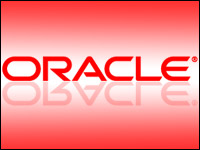
Oracle has released version 19 of its Oracle CRM On Demand application, providing upgrades that range from small, incremental changes to significant innovations.
These include new cloud extensibility and mobile options; more access for sales reps via a new connected smartphone application that allows them to access and update information remotely; a new user interface; and more options for customization.
Oracle has also rolled out new vertical applications for the life science, insurance, financial services and automotive industries.
Oracle aims for new releases of CRM On Demand every six to eight months, said Anthony Lye, senior vice president of CRM.
“In between major releases, we put out minor releases,” he told CRM Buyer, “so our customers get new capabilities every 90 to 120 days.”
New Mobile Features
The biggest improvement in this release, according to Lye, is that Oracle has incorporated technology from its fusion middleware, ADF Mobile, into the smartphone application.
ADF (Application Development Framework) Mobile is a Java-based framework for building apps for mobile devices. Its connection to CRM On Demand means customers can deploy any of the application’s functionality to the smartphone. If they have customized any of those features, the middleware translates them to the mobile environment as well, Lye explained.
“Let’s say a company has added a new field in CRM On Demand called ‘XYZ process,'” he said. “It pushes straight out to the mobile device with this addition — there is no programming or having to stop and start the server.”
To develop this mobile client, Oracle used a device firm in Silicon Valley that, according to Lye, is particularly skilled in building user interfaces.
“They really understand the process and behavior of a sales rep,” he remarked.
A New Outlook Client
Oracle also built a new Microsoft Outlook client for this release, Lye continued. “We have ported the lead, account, opportunity fields — all the CRM objects that didn’t exist in Outlook — we ported them using native Outlook technology.”
That means a user can access the Outlook client either connected or disconnected, he said.
“In the bigger picture, we are providing a unified data structure and pervasive CRM processes wherever the user wants to work,” Lye noted — “on a mobile phone, via browser or, in this case, through Outlook.”
Customization Made Easy
To that end, Oracle also tweaked its customization processes. Prior to release 19, users had to write a customization and run it themselves.
“Release 19 lets them load customizations into our cloud, leveraging the Oracle infrastructure,” said Lye, “so if they want to expose these extensions, we can run them as part of the app.”
Oracle also enhanced several of its vertical industry applications. For example, new automotive functionality includes vehicle enhancements, dealer addresses, and improved historical analytics. New insurance capabilities include policy origination support, policy object enhancements, and financial plan and financial account enhancements.























































